If this is the first time you are forming a Facebook group for your brand’s community, start with stricter posting permissions and gradually relax them as your community culture develops. Your audience doesn’t have to download another app (like Instagram or Threads) or figure out a new platform. It’s like inviting them to a space they’re comfortable in, but this time, it’s all about them and your brand. Once inside the group, you can choose to sort by most recent posts or most recent activity.
Secondly, I actively monitor the group and promptly remove any irrelevant or spammy posts to maintain the quality of discussions. If you have a physical store or attend events related to your niche, display signage or hand out flyers promoting your Facebook group. By utilizing multiple channels for promotion, you’ll reach a wider audience and attract new members who may not have found your group otherwise. Creating a Facebook group involves several straightforward steps. This guide will walk you through the entire process, making it easy to start your own online community.
How to Add a Welcome Post to a Facebook Group?
These events allow members to learn from industry experts or each other, share their insights, and have their questions answered in real time. This can not only boost engagement but also foster a sense of community as members get to interact with each other more directly. To promote your Facebook group through other channels, it’s essential to leverage existing platforms where potential members may already be present. Share links to your Facebook group on other social media platforms like Twitter, TikTok or Instagram, inviting your followers there to join the community on Facebook.
What Makes Facebook Groups Different?
What matters is that it still feels like a space where people want to return. When your group starts getting active, it helps to know what’s working. Facebook Insights shows you which posts actually start conversations and when people are most likely to engage. It’s about having a place where real conversations can happen. They give people a reason to slow down, listen, and respond, not just scroll past. One of the most crucial steps in creating and managing a Facebook group is to analyze and monitor your group’s performance.
Yes, it’s definitely possible to monetize your Facebook group and generate income from it. There are several strategies you can employ to achieve this. Are they just there to sell something to their audience and have never given real value?
- This is just one of the many ways Facebook Pages allow you to monitor the audience and how well your product or message is being received.
- Closed Facebook groups offer a more private setting compared to public groups.
- This limit is designed to prevent spam and abuse on the platform.
- If you don’t see the tab, you may need to click on “See More” to reveal additional options.
Either way, rememberthat growing a Facebook group takes time and patience. Implementing proactive moderation techniques like post-approval or keyword filters can help prevent conflicts before they escalate, but I don’t do post approvals. That said, I do use keyword filters since I don’t like a lot of unnecessary profanity, complaining/venting, or other unproductive things in my communities.
For as much work as you put into building a strong fan base, it is just as important to keep engaging your followers to ensure that your community thrives. Here are some best practices to consider to help you engage more meaningfully with your fans. A Facebook page is essentially designed to maximize visibility, and you can’t really make them private.
Targeted messaging is another crucial aspect of developing a focused content strategy. Your group’s messaging should align with the goals and values of your community, providing clear and consistent communication that resonates with your audience. From starting your Facebook Group to building lasting engagement, this blog walks you through every step of creating a real community. Learn how to foster trust, read engagement insights, and create a space people return to.
You can do this from the “Manage Discussions” section in your Facebook Group settings. Add friends or other individuals who you want to be part of your group. You can manually send invitations or share the group’s link.
Groups actually offer https://www.facebook.com/stellarspinsonlinecasino/ the option to be made private and/or given limited visibility because not all groups want to attract lots of attention from everyone on Facebook. Some groups are for small, specific interests and some groups may want to limit membership to select people. Groups are more about cultivating community rather than promoting a brand, and sometimes setting privacy limits can help keep those communities safe. Creating a Facebook group is a powerful way to engage with your audience, share valuable content, and build a thriving community.
